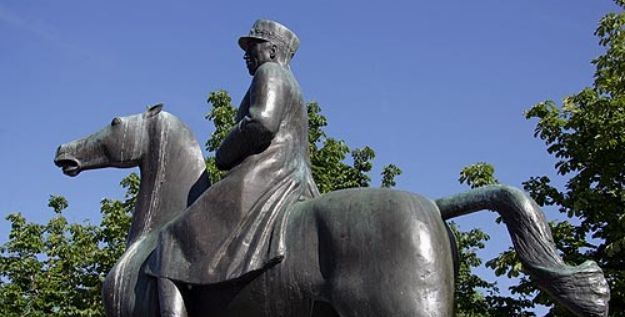


By Steve Sailer
05/24/2009
Conor Friedersdorf quotes John McPhee:
In the First World War, General Ulrich Wille led the Swiss to victory. Victory consisted of successfully avoiding the conflict. As someone put it, “We won by having no war.” In the Second World War, the victorious Swiss general was Henri Guisan, of the Canton de Vaud. There is a General Guisan Quai in Zurich, a Quai General Guisan in Geneva. In every part of Switzerland, there are streets and plazas and equestrian statues–there are busts on plinths overhung with banners and flags–doing honor to the general of an army that did not fight.
Is Switzerland the only country that puts up statues of leaders esteemed for staying out of wars?
I've never heard much about the leaders who kept Turkey out of WWII (until declaring war on Germany toward the end) — a remarkably sensible decision in a bellicose era (consider highly civilized and non-martial Italy’s pointless participation in both World Wars). Turkey was, like Germany, a loser from the Versailles Treaty, but, unlike Germany, it kept its head.
Belarus still hasn’t fully recovered from Nazi and Soviet tank armies fighting back and forth across its land. If Turkey had come in on either side early on, it might have been similarly afflicted. But I've never heard who deserves credit for Turkey being both strong enough and sensible enough to avoid war. Occasionally, somebody (e.g., Paul Johnson in Modern Times) gives Franco some credit for Spain sitting out WWII, but I never hear about the Turks who decided to give war a pass.
Presumably, this is partly due to Turkey’s continuing Ataturk cult of personality (who died in 1937), which serves to tie together perhaps the oldest (and thus most innately fractious) agricultural civilizations in the world.
So, what’s the story behind this dog that didn’t bark fact?